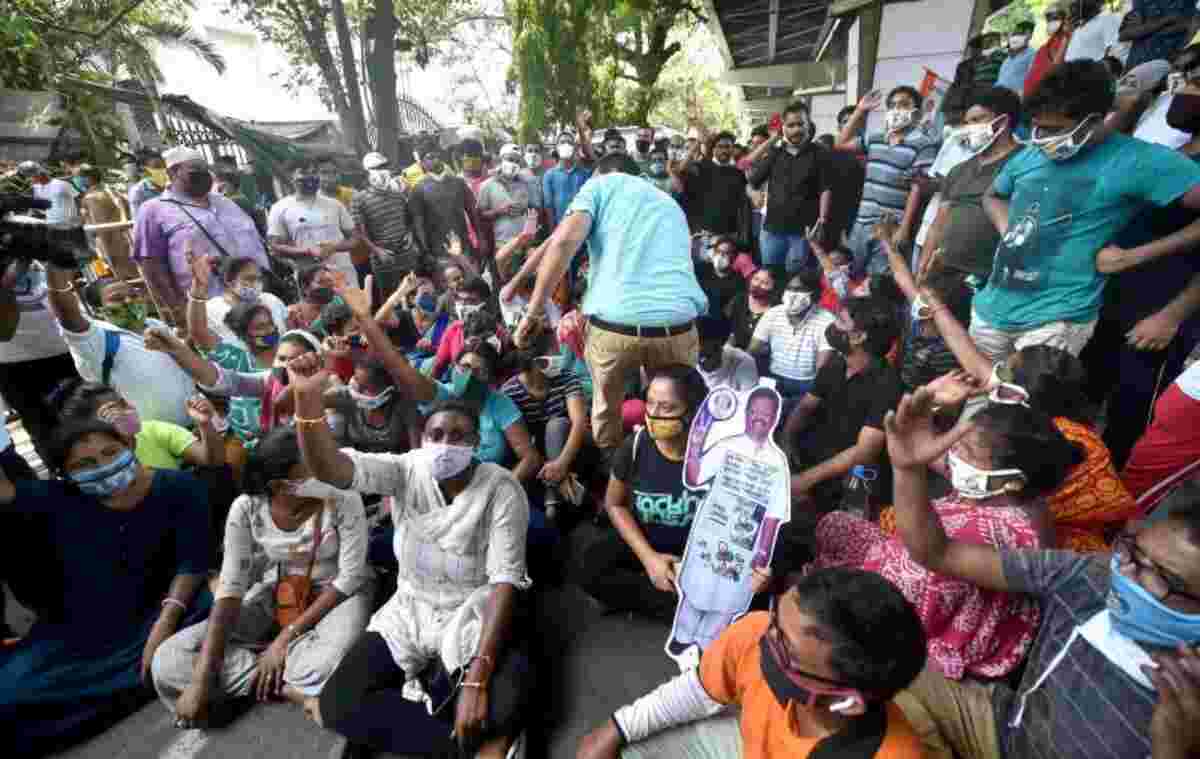Political antagonism?

The state of democracy and the tenet of federalism in India have hit a new low with the arrest of two ministers of the Mamata Banerjee-led West Bengal government along with two former TMC ministers in a six-year-old Narada tape bribery case. The instance displays how the provisions of the Constitution can be misrepresented to tone down its very spirit, and how the travesty of democracy can undermine the sanctity of the same. The arrest of newly sworn-in TMC ministers, Firhad Hakim and Subrata Mukherjee, and former minister Madan Mitra, has once again exposed the predatory instincts of the Central leadership and also its unwillingness to accept its humiliating defeat in the prestige battle of West Bengal. The fourth person to be arrested was former TMC minister Sovan Chatterjee who had joined BJP in 2019 but quit the party before 2021Assembly elections after being denied the ticket. A double standard is evidently clear as the TMC MPs (during the tape release) — namely Mukul Roy and Suvendhu Adhikari who have gone to the BJP's fold — face no actions to date. The reason for this anomaly is that the approval for arrests of the MPs was sought before the Speaker of Lok Sabha and that for arrested MPs before the Governor, and not the speaker of the State Assembly. Om Birla has not yet decided on the matter but the Governor was quick to do so. In any case, the present unfolding only validates the arguments alleging the Central Government of misusing its probe agencies as weapons. The allegations related to misuse of Central agencies by the Centre have resurfaced time and again over decades but, for BJP, it has been a more frequent and blunt recourse right since it came to power. Moreover, the role of governors in the federal political set up in any state has been a long-debated issue. Rather than being solved, the tangle is getting more tangled with time. Even in the present, there seems to be a conflict in the exercise of power between the governor and the legislative head of the state. The position of the Governor is widely perceived as that of an agent of the Centre. Though it is not a provision but has often been a conventional reality. The position of the nominal head of state was deliberately tilted towards the Centre by our Constitution makers, given the Unitary inclination they aimed for in their federal structure. This system has left an unintended loophole that has of late become a blunt tool at the disposal of Central leaderships, getting more pronounced by the day. The approval granted by Governor Jagdeep Dhankhar on May 10 is being challenged by the West Bengal Assembly Speaker, Biman Banerjee. The speaker has claimed that his authority was bypassed as no permission was sought from him despite his being in office. The governor had issued sanctions under powers granted to him by Article 163 and 164 of the Indian Constitution. One aspect that needs to be pondered over is what made CBI bypass the Assembly speaker. Was the Central agency looking for a soft spot? While Narada tapes were recorded in 2014 and released in 2016 before the West Bengal assembly elections, the arrests were made days after the oaths of ministers. All through the while, one thing has been commendable — timing. The Central Government seems to have mastered the trade over years. But while the timing of this politically designed move may be good for some, it certainly is a disaster for the state which is reeling under the burden of increasing caseloads after witnessing grand rallies at the behest of "big leaders". The focus of the state government is on the containment of the pandemic. Any politics-triggered diversion at this juncture will have disastrous consequences. The time is not at all suited for political antagonism. The sledgehammer tactics of the BJP is notoriously accepted not only in India but globally as well but it will have to take a backseat in these testing times. In the aftermath of arrests, the TMC leaders have staged protests outside the CBI office which will further aggravate as the matter gets political, which it already is. Apart from massive protests around the CBI office, TMC supporters have also gathered around the Governor's residence. The protests are only raging even after the repeated appeals of maintaining law and order by TMC legislators. This situation leads to a critical question. Weren't these protests anticipated as an aftermath of Dhankar's sanction and CBI actions? Evidently, after the conclusion of Assembly elections, an attempt of painting a narrative of violent Bengal under Mamata Banerjee is being made. BJP leaders and TMC turncoats have been repeatedly hinting towards the imposition of President's Rule under Article 356. Even the possibility that recent incidents of violence in Bengal could have been perpetrated by the BJP cannot be ruled out. It is important to note that Jagdeep Dhankhar believes that a situation of anarchy has been reached in the state and he has "invited the attention of CM Mamata Banerjee" . The narrative of stone-pelting and ignorance of Kolkata Police is also being framed. It will, however, be prudent to find out who are the real culprits behind the scene. The leadership at the Centre must show maturity at this crucial juncture to avoid throwing the state into chaos. The state government must also continue its peaceful stance and communicate with violent protestors as the government is bestowed with the trust of people to shoulder the responsibility of controlling the law and order situation in the state.



